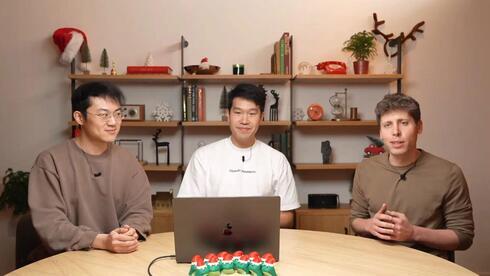- 6 Posts
- 21 Comments

 4·5 days ago
4·5 days agoMy group recently switched to Matrix and so this would be a tough sell, but it seems interesting. I haven’t been a fan of Matrix and miss the ease of UI in discord, but was happy to leave with it’s direction. How would you sell it with a small group that has small, but mounting usability issues with Matrix?
I should start off and say I’m less interested in the quesiton of free will than the relationship between consciousness and matter. I want to reframe that so you know what I’m focused on.
Modern theories are a lot more integrative. … [I]nstead it is an essential active element in the thought process.
Here, I’m assuming “it” is a conscious perception. But now I’m confused again because I don’t think any theory of mind would deny this.
On the other hand, if “it” is “the brain” then I need to know more about the theory. As I understanding it, the theory says that the brain creates models. Models are mental. I just don’t know how that escapes the black box that connects to the mind. But as you assert and I understand, it is:
stimuli -> CPM ⊆ brain -> consciousness update CPM -?> black box -?> mind -?> brain -> nervous system -> response to stimuliIf it isn’t obvious, the question marks represent where I don’t understand the model.

So if I were to narrow down my concerns, it would be:
- Is a model a mental process?
- If mental processes are part of the brain, then how so?
I’m going to stick with the meat of your point. To summarize,
- Some materialist views create a black box in which consciousness is a passive activity
brain -> black box -> mind - CPMs extract consciousness from the black box
- Consciousness plays a function role by providing feedback
brain -> black box -> CPM-> consciousness -> black box -> mind
But to go further,
stimuli -> brain -> black box -> CPM-> consciousness update CPM -> black box -> mind -> response to stimuliThe CPM as far as I can tell is the following:
representation of stimuli -> model (of the world with a modeled self) -> consciousness making predictions (of how the world changes if the self acts upon it) -> updating model -> updated prediction -> suspected desired resultI feel like I’ve mis-represented something of your position with the self. I think you’re saying that the self is the prediction maker. And that free will exists in the making of predictions. But presentation of the CPM places the self in the model. Furthermore, I think you’re saying that consciousness is a process of the brain and I think it’s of the mind. Can you remedy my representation of your position?
Quickly reading the review, I went to see if they posited role for the mind. I was disappointed to see that they, not only ignored it (unsurprising), but collapsed functions normally attributed to the mind to the brain. Ascribing predictions, fantasies, and hypotheses to the brain or calling it a statistical organ sidesteps the hard problem and collapses it into a physicalist view. They don’t posit a mind-body relationship, they speak about body and never acknowledge the mind. I find this frustrating.
- Some materialist views create a black box in which consciousness is a passive activity
Sorry for the long delay. I think engaging with the material and what you wrote requires some reflection time and, unfortunately, my time for that is limited these days. And so while I was hoping to offer a more robust response after having read the links you provided, I think engagement was more necessary to keep the conversation fresh even if I’ve only had a glance at the material.
The brain in the dish study seems to be interesting and raised new questions for me. “What is a brain?” comes to mind. For me, I have a novice level understanding of the structures of the brain and the role in neurotransmitters, hormones, neuron structures, etc. But I’ve never really examined what a brain is and how it is something more than or other than it’s component parts and their operations.
Some other questions would be:
- What is the relationship between brain and mind?
- What do we mean by mind? Do all brains create a mind?
- Or, in context of this conversation, do all brains have a CPM?
- Does adaptive environmental behavior by species without a brain indicate a CPM?
So those are some of the initial thoughts I had and would read the paper to see if the authors are even raising that question in their paper.
But more fundamentally, we still have to examine the mind-body problem. Recontextualizing it to a CPM, “what is the relationship between a CPM and either the brain or the mind?” I am unclear if the CPM is a mental or physical phenomena. There seems to be a certainty that the CPM is part of the brain, but the entirety of it’s output is non-physical. I imagine that we assume a narrative where the brain in the dish is creating a CPM because it demonstrates learning, adaptive behavior based upon external stimuli.
Ultimately, I bring it back to a framing question. Why choose weak emergence prematurely? It limits our investigation and imagination.
Well… that’s my set of issues. I’ll try to find time to read those articles in the next few days!
Cheers!

 4·15 days ago
4·15 days agoFrom g4tv? Damn. Also, same.

 3·15 days ago
3·15 days agoInstead of very pretentious, try using chi-chi.
Is the emergent phenomena, consciousness, weak or strong? I think the former, which I think you support, posits a panpsychism and the latter is indistinguishable from magic.
I’m a little confused about the relationship between the causal prediction machine (CPM) and the self. to reiterate, the brain has a causal prediction engine. It’s inputs are immediate sensory experience. I assume the causal prediction engines’ output is predictions. These predictions are limited to the what the next sensory stimuli might be in response to the recent sensory input. These predictions lead to choices. Or maybe the same as choices.
So these outputs are experienced. And that experience of making predictions is me. Am I the one experiencing the predictions as well?
So this sentence confuses me: “This prediction machine is me making predictions and choices.” Am I making the predictions or is it the CPM?
I’m not a nostalgic one, but Space Cadet got me with all the good feels.

 3·21 days ago
3·21 days agoJust wait till tomorrow to have your kids. Kegels it in!
Hit play on flight of the valkyries.
Light cigar.
Cackle ceaselessly.

 4·1 month ago
4·1 month agoThe queue can be sorted by date. If you hit date again it reverse the order.


 1·1 month ago
1·1 month agoHasok Chang, Professor of History and Philosophy of Science at Cambridge University, wrote a wonderful book Is Water H2O? In it he traces the historical and philosophical twists and turns to get from water to H2O. Along the way, he reckons with and treats seriously competing theories other than what emerged as the winner.
In the end, he doesn’t disagree with the role of H2O in water. Rather, he shows how the process of scientific theory making is benefited from a pluralistic view through s repetitive process of challenge and theory adjustment.
I mainly made the comment because we shouldn’t always assume what we were shown in high school captures the deeper process of insight creation.
He deals with the weekly emergent qualities like surface tension. We might be able to say that surface tension is one property of wetness even.
But I also think that water is one of the few phenomena that seems to actually have a strongly emergent qualities. Which is to say, there’s qualities that are in water that are not explainable by the properties of its component parts.
Ultimately, one of Chang’s goals it to contextualize and not reduce these scientific concepts for greater insights.
To be more accurate, I don’t think it’s wrong to say that water is more than just H2O. To get gestalt, we should say water is something other than the sum of its parts, H2O.

 21·1 month ago
21·1 month agoH2O is not water

 6·1 month ago
6·1 month agoDiuretic not laxative.

 3·1 month ago
3·1 month agoTextorcist
Get gud
A little box you can put your app.
If the app does bad, it doesn’t sink your ship. Just throw the box over board and repackage the app.
I’m not sure most people need it, but it could be fun to use a new app inside a container. Also makes updating that needs a restarting without shutting down your other services.










"Welcome back to tonight’s episode of “Is it AI or 700 Indian Engineers!!” 👏🏾👏🏾 👏🏾